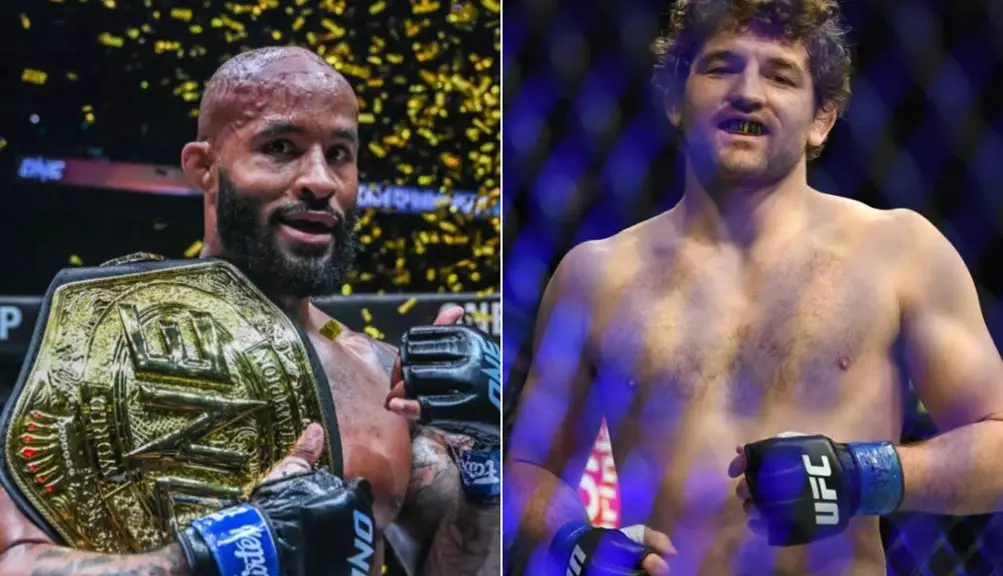Mixed Martial Arts (MMA) has seen its fair share of significant trades and acquisitions, but one move in 2018 between the UFC and ONE Championship stands out as a pivotal moment in the sport’s history. The exchange involved former UFC flyweight champion Demetrious Johnson and ex-ONE Championship titleholder Ben Askren—a swap that not only had immediate implications for the fighters involved but also altered the landscape for both organizations. This article will dissect the repercussions of this paradoxical trade and explore how it facilitated growth for both entities in the hyper-competitive world of combat sports.
In 2018, fans were buzzing with excitement when the UFC and ONE Championship orchestrated one of the most unusual trades in sports history. While trades are common in team sports, seeing a well-respected champion exchanged for another was virtually unheard of in MMA. Demetrious Johnson, a pioneer in the flyweight division, had successfully defended his title multiple times and was widely regarded as one of the greatest pound-for-pound fighters of all time. Ben Askren, known for his dominant wrestling and brash personality, was initially a big name in the sport but had left the UFC before its mainstream resurgence, building his reputation further in ONE Championship. The move was not just about swapping fighters, but it carried the weight of expectations from fans and organizations alike.
Upon joining ONE Championship, Johnson quickly established himself not just as a competitor, but as a global ambassador for the organization. He earned the ONE flyweight title by defeating Adriano Moraes, solidifying his legacy with an impressive performance that showcased his skills. By advancing his career in a different environment, he was able to achieve financial rewards and a broader audience through ONE’s focus on the Asian market. Johnson’s success overseas illustrated that fighters could excel outside the traditional UFC platform, potentially inspiring future athletes to consider broader horizons in their careers. His argument that “everybody won” can be substantiated: he redefined his own career while elevating the brand of ONE Championship.
Contrasting Johnson’s trajectory, Askren entered the UFC amidst significant anticipation. His debut at UFC 235 saw him finish Robbie Lawler, a moment that elevated his profile almost instantly. However, Askren’s journey took a more tumultuous turn thereafter; his subsequent defeat by Jorge Masvidal via the fastest knockout in UFC history shocked the MMA community and made headlines globally. Although Askren faced challenges, including a submission loss to Demian Maia, he was instrumental in fostering engaging narratives. His trash-talking and larger-than-life persona contributed to building hype around his fights. Askren’s unsolicited insight that “everybody won” serves to validate that his brief UFC stint still sparked interest in the sport and broadened conversations around fighter personalities.
The trade had far-reaching effects, positively impacting both organizations. Askren’s exposure and persona helped boost matchups and promoted fighters like Jorge Masvidal to greater prominence, leading to a whirlwind of opportunities that could be traced back to the energy Askren brought to the cages. Fighters like Kamaru Usman and Leon Edwards emerged in a revitalized UFC landscape, suggesting that Askren’s impact rippled beyond his own career.
On the flip side, ONE Championship gained street cred by employing a beloved figure like Johnson. The knockouts and competitive matches shown within their promotion fostered respect for their fighters, reinforcing that ONE is a legitimate competitor in the MMA realm. As both organizations grew, they added increased value to the sport as a whole, broadening global reach and interest.
The Johnson-Askren trade presents an invaluable case study in understanding the mechanics of fighter mobility and organizational dynamics within MMA. Both fighters resurfaced in new environments, benefiting their respective promotions while helping to shape the future of the sport. As Demetrious Johnson stated, this trade did not merely benefit the athletes; it signaled a new era for both the UFC and ONE Championship, highlighting the evolving nature of MMA. While the outcomes for each fighter may differ, the trade’s impact on MMA as a whole can be viewed as a mutual triumph.

